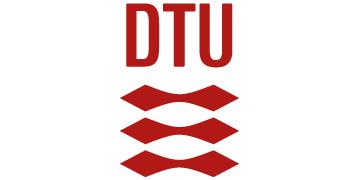Postdoc in Modelling of Power-2-X, Energy Storage, and Future Fuels Systems
Do you want to contribute to a sustainable future? At DTU Energy our research is targeting exactly this, and we are looking for a new team member.
It is clear to all that we need to gradually transition away from use of fossil fuels. In this we face a number of hard to abate sectors, for instance transportation. Cars and small vehicles can be run on batteries and fuel cells, but larger vessels like aircrafts and ships for long distance transport will need higher energy density carriers, such as liquid fuels. Various fuels can be synthesized by electrolysis and down-stream catalytic upgrading processes, but the question of, what are the best sustainable alternatives to the fossil fuels, remains unanswered.
Hydrocarbon fuels like methanol or methane may be synthesized from biomass, but research shows that fuels obtained from bio-waste (straw, wood chips etc.) might not be sufficient to cover our needs, at least not without supplying additional hydrogen. This hydrogen can be obtained by electrolysis using renewable energy (wind, solar). It is known that the different technologies for electrolysis, biomass conversion and down-stream fuel processing can act synergistically together through exchange of heat or operating at pressure. But the question of which route is the cost-optimal is yet to be investigated, in particular taking into account for technologies in development.
The solid oxide cell (SOC) technology has the potential to become a key technology in the future sustainable energy system - acting both as fuel cells to generate power locally (SOFC) and as electrolysis cells (SOEC) to supply hydrogen (and maybe also nitrogen) to be used for synthesizing fuels for the transport sector. But also the alkaline electrolysis technology can be brought to higher temperatures with higher potential efficiencies. How could these technologies be combined with pyrolysis, gasification, heat storage and CO2 capture to make e.g. methanol and kerosene?
We are thus looking to recruit a postdoc to help us with researching the above stated question, by setting up system models at the plant level involving electrolysis units, down-stream processes and energy storage to describe the overall process economy. You will be working in a team with experts in electrolysis technologies and energy storage, with industry, and other university departments.
Qualifications
Qualified applicants must have:
- PhD degree in engineering, physics, chemistry or similar.
- Be excellent in establishing an overview and take responsibility
- Experience with system modelling, preferably of one or more of the mentioned technologies
- Knowledge on energy conversion processes, energy system descriptions and techno-economical assessments
- Ability to work independently, to plan and carry out complicated tasks, and to be a part of a large, dynamic group.
- Good communication skills in English, both written and spoken.
We offer
DTU is a leading technical university globally recognized for the excellence of its research, education, innovation and scientific advice. We offer a rewarding and challenging job in an international environment. We strive for academic excellence in an environment characterized by collegial respect and academic freedom tempered by responsibility.
Salary and terms of employment
The appointment will be based on the collective agreement with the Danish Confederation of Professional Associations. The allowance will be agreed upon with the relevant union.
The period of employment is 2 years. The expected starting date is as soon as possible, as this is a rapidly growing activity with many active projects and partners, and thus with lots of potential for growth.
You can read more about career paths at DTU here.
Further information
Please contact Senior Researcher Henrik Lund Frandsen, +45 93 51 16 18, hlfr@dtu.dk, or Professor Rasmus Bjørk, +45 28 55 86 56, rabj@dtu.dk.
Please do not send applications to this e-mail address, instead apply online as described below.
You can read more about DTU Energy at www.energy.dtu.dk.
If you are applying from abroad, you may find useful information on working in Denmark and at DTU at DTU – Moving to Denmark.
Application procedure
Your complete online application must be submitted no later than 31 May (Danish time). You can apply for the position online at www.career.dtu.dk.
Applications must be submitted as one PDF file containing all materials to be given consideration. To apply, please open the link "Ansøg", fill out the online application form, and attach all your materials in English in one PDF file. The file must include:
- A letter motivating the application (cover letter)
- Curriculum vitae
- Academic Diplomas (MSc/PhD)
- List of publications
- Excel sheet with translation of grades to the Danish grading system (see guidelines and Excel spreadsheet here)
All interested candidates irrespective of age, gender, race, disability, religion or ethnic background are encouraged to apply.
Please write in your application that you've seen the job at Jobfinder.
DTU Energy
The Department of Energy Conversion and Storage is focusing on functional materials and their application in sustainable energy technology. Our research areas include fuel cells, electrolysis, solar cells, electromechanical converters, sustainable synthetic fuels, and batteries. The Department, which has more than 200 employees, was founded in 2012. Additional information about the department can be found on www.energy.dtu.dk.
Technology for people
DTU develops technology for people. With our international elite research and study programmes, we are helping to create a better world and to solve the global challenges formulated in the UN’s 17 Sustainable Development Goals. Hans Christian Ørsted founded DTU in 1829 with a clear vision to develop and create value using science and engineering to benefit society. That vision lives on today. DTU has 12,900 students and 6,000 employees. We work in an international atmosphere and have an inclusive, evolving, and informal working environment. Our main campus is in Kgs. Lyngby north of Copenhagen and we have campuses in Roskilde and Ballerup and in Sisimiut in Greenland.

